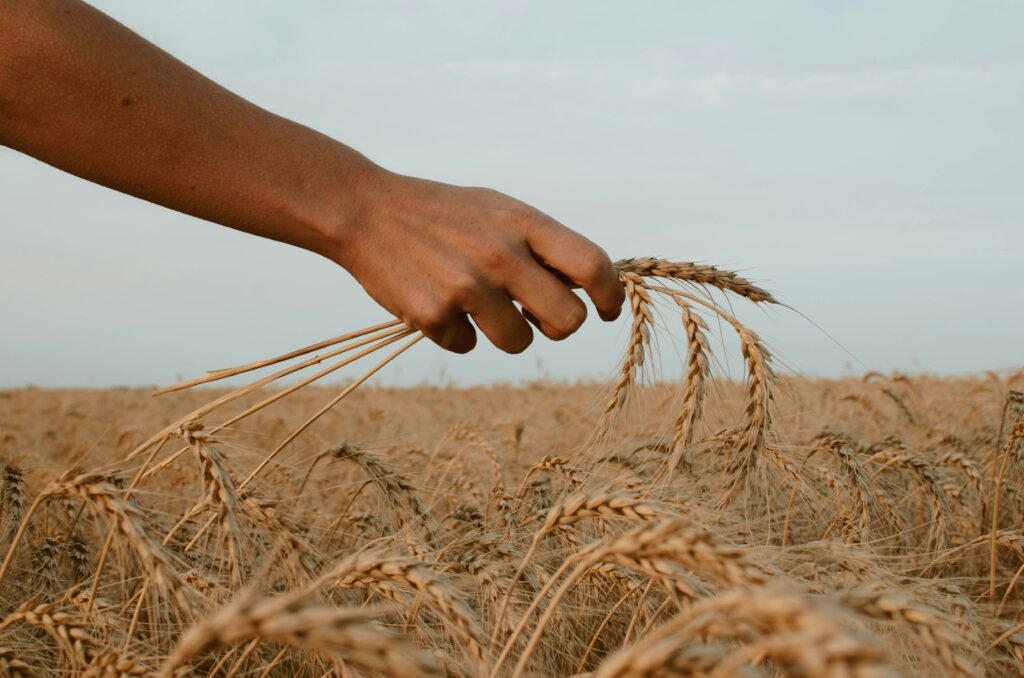
Part 1: Background | Part 2: Loyal Love | Part 3: Chance | Part 4: Abundance
Ruth arrives home with an astonishing amount of barley. Naomi, of course, has questions.
How did she know that “a man … took notice of” Ruth (Ru 2.19)? Well, there’s no way Ruth harvested all that without help. So Naomi asks. And just one word in Ruth’s answer sets the world on fire.
Boaz. Naomi knows about this man.
“Boaz was both a wealthy landowner and a close relative of Naomi. As such he could be expected to buy for the family its rightful land (Lev 25:25) and look after the helpless members of the family” (WBC).
Naomi’s statement here appears ambiguous:
Blessed be he of the Lord, who hath not left off his kindness to the living and to the dead (Ru 2.20).
Who “has not left off his kindness”? Boaz? or the Lord? Contextually either one would make sense; Boaz has been kind, and God has been kind as well. But in the Hebrew as in English the Lord’s name immediately precedes the relative pronoun who, and there are other grammatical considerations that favor the Lord as the subject as well. If that’s the case, then this moment is a major development in the character of Naomi.
Remember the bitter old woman who arrived a few days ago? What has happened to her now? This Yahweh, who was great but not good, she recognizes as one who is after all loyal to his covenant promises. Of a handful of men who could serve as a redeemer—maybe just two, as far as the rest of the story tells us—Ruth has found an eminently eligible one on her first day in the fields.
In leading Ruth to the field of Boaz, God has exhibited kindness “to the living and to the dead” (Ru 2.20). Both of those adjectives are plural. The living ones, of course, are Ruth and Naomi. The dead ones? That would be Ruth’s late husband—we don’t know (yet) whether that’s Mahlon or Chilion—and Naomi’s late husband Elimelech. By looking after their widows, God is treating them with kindness, taking care of those that the dead no longer can.
So what now? Naomi advises Ruth to heed Boaz’s admonition (Ru 2.21) that she work only in his field and stay close to his workers, who will protect her (Ru 2.22). She, too, is aware of the danger to a young woman working alone out in the fields in the days of the judges.
Barley and wheat harvests together (Ru 2.23) would last about 6 weeks. “Barley was harvested from late March through late April, wheat from late April to late May” (NET), “a period of intense labor for about two months. This generally coincided with the seven weeks between Passover and … Pentecost” (MSB).
During this time, and with the cooperation and help of Boaz’s workers, Ruth would bring home far more grain than the two women would need for their own food. With the surplus they could trade for their other needs, most obviously meat, dairy, oil, and vegetables that would be available in the little village. Ruth has placed herself into the family of the aging widow and under the protecting wings of Israel’s God, and he has supplied the two with all that they need.
God is gracious; he gives good things to the undeserving.
But in the end, this is more than a story of sufficient caloric intake for two people in a faraway corner of the world. God is going to use Boaz to provide far more than food to them. And in doing that he’s going to change the world—the world of that day, and our world as well, in every place and in every time.
We’re just halfway through the story. The best—by far—is yet to come.
Photo by Paz Arando on Unsplash

defenderofmy2hearts says
I love this!